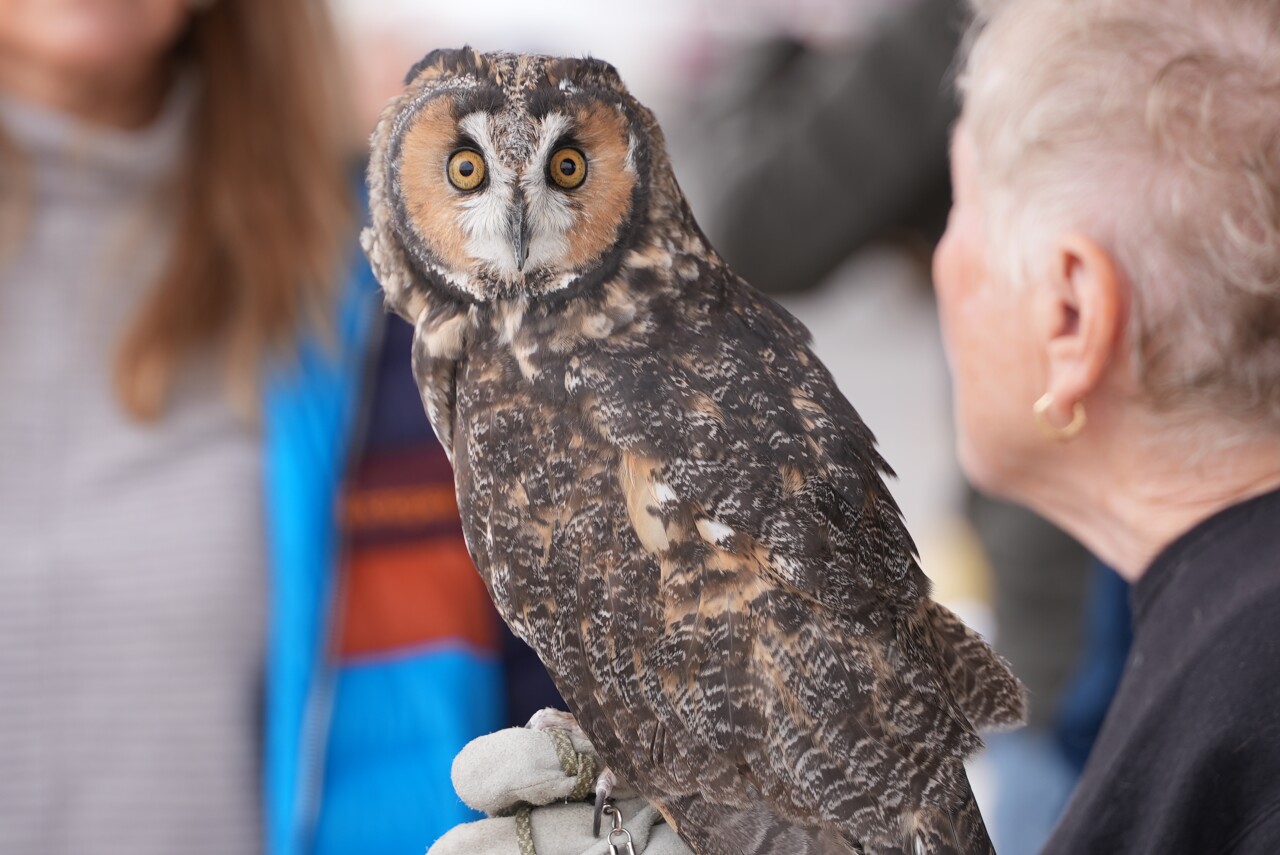
HELENA — A major milestone in Montana wildlife care and education was celebrated Wednesday as Montana Fish, Wildlife & Parks (FWP), community partners, and donors gathered to break ground on Montana Wild’s new avian building—a facility years in the making.
The project will expand both rehabilitation services and educational access for the center’s raptor ambassadors, which connect thousands of people each year to Montana’s wildlife and conservation mission.

Montana FWP Director Christy Clark emphasized the importance of the initiative, saying, “It is kind of the unsung hero, but is such an important part of stewarding wildlife, and the education piece is huge, and Montana Wild is such a bright light.”
Montana Wild currently cares for 13 ambassador raptors, including owls, hawks, and kestrels—many of which cannot survive on their own in the wild. These birds help educators reach students, residents, and visitors across the state through programming and outreach.
Cowboy, a long-eared owl, and Spike, an American Kestrel, are among the center’s best-known feathered residents.
“With this build, the public is going to have interpretive signage and be able to see these birds as they come through,” said Ali Pons, wildlife rehabilitation program manager.
The new facility’s west side will feature more accessible viewing opportunities, allowing people to safely observe raptors without needing a reservation for special programs.

The east side of the building will expand clinical and recovery spaces for the nearly 200 injured or orphaned birds that Montana Wild receives each year—from collisions to habitat impacts.
Pons said the improvements will greatly benefit raptors as they heal:
“It provides a weathering area where they can be out in the snow and the rain if they choose, get a lot more sunlight rather than being in more enclosed areas, and helps with their enrichment by giving them a lot more things to look at.”
The project, with a reported cost of approximately $860,000, was approved by the Montana Legislature in both 2021 and 2023. Significant funding was provided by private donors and business sponsors through the Montana Outdoor Legacy Foundation and the Foundation for Animals.
“This project is just an exciting time to have the ground being turned here and get this project underway because it has taken five years to get to this point,” said Mitch King, director of the Montana Outdoor Legacy Foundation.
Crews will continue work throughout winter, with completion expected in Spring 2026. During the transition, Pons says the raptor residents are adapting remarkably well.
“They have been really resilient in having to move to different enclosures and different spaces, and I just admire the fact that they have handled it so well,” Pons said.
Once finalized, the building will serve as a cornerstone of Montana’s wildlife rehabilitation and environmental education efforts—ensuring the next generation understands the importance of protecting the state’s iconic bird species.
Originally reported by KTVH.